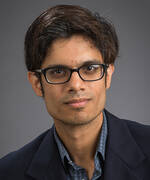
27 Apr Foreign Born Physicians Help Fill Need for Doctors in US Rural Areas
MedicalResearch.com Interview with:

Dr. Khanna
Gaurav Khanna Ph.D.
Assistant Professor | School of Global Policy and Strategy
University of California, San Diego
www.econgaurav.com
MedicalResearch.com: What is the background for this study? What are the main findings?
Response: There is a shortage of doctors in certain parts of the US. For instance, although about 20% of the United States population live in rural areas, only 11% of physicians practice in these locations. The research shows that relaxed visa requirements enable more foreign-trained doctors to practice in remote and low-income areas, without reducing the employment of U.S.-trained doctors.
One such program that facilitates keeping foreign-born physicians in the US is the Conrad 30 Program. Most participants in the Conrad 30 Waiver Program work in Health Professional Shortage Areas (or HPSAs), areas lacking an adequate number of primary care physicians, dentists, or mental health care providers.
MedicalResearch.com: Where are the physicians most commonly from? Is language a barrier in rural communities?
Response: Most foreign-born physicians are from India, Pakistan, and Canada. We are unaware of language barriers being a big issue, as much of the education in these countries is in English.
MedicalResearch.com: What should readers take away from your report?
Response: The Conrad 30 program may be an effective tool in bridging the shortfall in rural areas, with aging populations. Foreign-born physicians may be particularly crucial at times of health care crises and pandemics when hospitals may be short on staff.
Disclosures: This research was supported by a grant from the National Science Foundation.
Citation: Migration Policy and the Supply of Foreign Physicians: Evidence from the Conrad 30 Waiver Program
Breno Braga, Gaurav Khanna & Sarah Turner
WORKING PAPER 32005
DOI 10.3386/w32005 ISSUE DATE December 2023
National Bureau of Economic Research
The information on MedicalResearch.com is provided for educational purposes only, and is in no way intended to diagnose, cure, or treat any medical or other condition.
Some links may be sponsored. Products are not endorsed.
Always seek the advice of your physician or other qualified health and ask your doctor any questions you may have regarding a medical condition. In addition to all other limitations and disclaimers in this agreement, service provider and its third party providers disclaim any liability or loss in connection with the content provided on this website.
Last Updated on April 27, 2024 by Marie Benz MD FAAD
